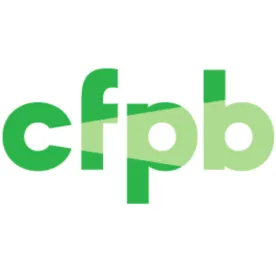On May 4, 2021, the Consumer Financial Protection Bureau (CFPB or the Bureau) released two new reports that double down on its message in early April 2021 that the Bureau is heightening its supervisory and enforcement scrutiny of mortgage servicers. See April 2021 GT Alert, CFPB Intensifies Focus on Pandemic Mortgage Servicing. The first research report analyzed the racial and ethnic distribution of borrowers in mortgage delinquency or forbearance programs, finding that Black and Hispanic mortgage borrowers are overrepresented in those groups. The second report summarized the 38,100 mortgage-related complaints that the Bureau received in the first quarter of 2021, highlighting that mortgage-related complaints have risen to their highest level in three years, with payment- and forbearance-related complaints significant contributors to this uptick.
CFPB Issues Research Report Highlighting Racial Disparities for Borrowers in Delinquency or Forbearance
On May 4, 2021, the CFPB issued a research report entitled, “Characteristics of Mortgage Borrowers During the COVID-19 Pandemic.” The report specifically examined the characteristics, including demographics, of borrowers in forbearance, borrowers who were delinquent but not in forbearance, and borrowers who were current on their mortgage payments during the COVID-19 pandemic.
Under the Coronavirus Aid, Relief, and Economic Security (CARES) Act, homeowners with government-sponsored enterprise and federally backed mortgages had the right to request and obtain forbearance for up to 180 days if they experienced a COVID-19-related hardship. Such borrowers were further eligible for an extension of an additional 180 days. According to the Bureau, nearly 5% of active loans were still in forbearance as of March 2021, with an additional .75% of active loans being reported as 30+ days delinquent. Notably, the Bureau’s research indicates that these adverse outcomes are disproportionately falling on communities of color, with Black and Hispanic borrowers making up “a significantly larger share of borrowers” who were in forbearance or delinquent relative to the overall percentage of mortgage borrowers. Specifically, the report found that:
-
Black and Hispanic borrowers, who together make up 18% of all mortgage borrowers, made up 33% of borrowers who were in forbearance, and 27% of borrowers in delinquency;
-
the share of loans with a loan-to-value ratio above 60% was significantly larger for borrowers in forbearance (50%) or delinquent (51%) compared to those who were current (34%);
-
loans reported as in forbearance or delinquent in March 2021 were more likely than current loans to be single-borrower loans and to have been 30+ days delinquent in February 2020, and forbearance and delinquency were also associated with distress on non-mortgage products; and
-
forbearance and delinquency were more common among borrowers in majority-minority census tracks and in tracts with lower relative income.
May 2021 CFPB Complaint Bulletin
On May 4, 2021, the Bureau also released a Complaint Bulletin summarizing the complaints submitted to the Bureau in the first quarter of 2021 relating to the mortgage industry. The CFPB is tasked with collecting consumer complaints about covered financial services pursuant to the Dodd-Frank Act, and it periodically releases its analysis of such complaints, treating complaints as a useful indicator of potential problems in a covered area, and reflecting a belief that “where there is smoke there is fire.” See Dodd-Frank Wall Street Reform and Consumer Protection Act of 2010, Pub. L. No. 111 -203, Section 1013(b)(3). Indeed, the Bureau has often cited consumer complaints as a justification for supervision and enforcement activity not only in specific industries, but also against specific companies.
The Bulletin’s key findings reflect increased complaints about mortgages generally, but also various issues relating to forbearance plans and the termination thereof. Specifically, the bulletin highlights:
-
the volume of overall mortgage complaints increased to more than 3,400 complaints in March 2021—the greatest monthly mortgage complaint volume in nearly three years;
-
consumers are experiencing various communication issues related to forbearance plans, including understanding what their options may be at the end of these plans;
-
complaints reflect confusion with mandatory account notices during forbearance; and
-
some consumers reported long delays in modifying their loan to address forborne payments.
Conclusions
Although neither the research report nor the complaint bulletin detail specific actions that the CFPB is undertaking or provide guidance to the mortgage industry, when read in conjunction with its recent mortgage servicing guidance, proposed rulemaking, and public statements, it is clear the Bureau’s attention is sharply focused on mortgage servicers’ efforts to help distressed borrowers and to ensure that those efforts comply fully with applicable anti-discrimination laws. These concerns lie at the intersection of the two pillars of the CFPB’s 2021 agenda – prevention of harm to borrowers impacted by the pandemic and promoting racial equity. For example, in its April 2021 Bulletin 2021-02, the CFPB first warned mortgage servicers that being “unprepared” for the coming wave of borrowers exiting moratoriums and forbearance plans is “unacceptable” and later that month in its Fair Lending Report to Congress, the CFPB made clear when pursuing racial and economic justice it will “use all the tools Congress gave it,” including but not limited to, enforcement.
The May 4 reports, thus, mark a continued drumbeat by the Bureau of increasing scrutiny during exams, through initiation of investigations and enforcement actions and by rulemaking to ensure servicers treat borrowers fairly and equitably as they emerge from the CARES Act forbearance plans. As we have noted in prior alerts, now is the time for servicers to ensure their processes for helping borrowers emerging from forbearance plans will support the expected spike in distressed borrower volume and their compliance management systems are robust. On the specific issue of fair servicing compliance, mortgage servicers should ensure they (1) have a consistent omni-channel plan for borrower outreach, including to borrowers in majority-minority census tracts, (2) are comfortable with their strategy for handling Limited-English-Proficiency borrowers, (3) are documenting all the pre-referral steps they take in terms of outreach, consideration of loss mitigation options, etc., and (4) are considering, as appropriate, back-testing assistance and loss-mitigation outcomes.




 />i
/>i

